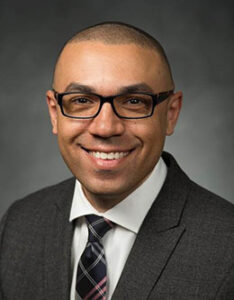“Although pride is highly effective at drawing individuals to racism and justifying its application, greed often motivates it. The adversary offers the destructive force of racism as a dangerous tool to justify greed—greed that manifests in the oppression of others for material gain, power, and control. Greed, as it relates to racism toward African Americans, can be seen with stark clarity in the history of slavery that I outlined earlier but also in the modern day. Researchers studying the Great Recession found that predatory lending agencies—all for the sake of profit—targeted predominantly Black communities and channeled them into high-cost, high-risk mortgage loans. This left Black families vulnerable to defaulting on their loans, having their homes repossessed, and losing much of their wealth. In the end, these two unholy traits—pride and greed—are mutually supportive and endow racism with colossal destructive force.
…do you believe that the main reason economic poverty is higher in some racial and ethnic groups compared to others is because of the notion that economically poorer groups do not value hard work? If so, I humbly invite you to notice where that line of thinking takes you. It might lead you to feel that the poor in these groups are not worthy of service because you perceive that they solely brought their economic condition upon themselves. Will you find joy in that belief? Will it lead you to love your neighbor as yourself? Does that perspective embody the commandment of the Lord that we “love one another, as [He has] loved [us]”?
I will adapt an analogy from Pulitzer Prize–winning author Isabel Wilkerson. She stated that the relationship we have to social problems is similar to individuals who have inherited an old home. The home is on beautiful grounds and has a sturdy foundation, but it has warped walls, rusted pipes, and faulty wiring. Despite not being originally responsible for these problems, we are the inherited owners of what is right and wrong with the home. Similarly, individuals can rightly assert that they had nothing to do with the sins of the past, such as slavery and lynching, yet we are living in the legacies of past generations.Pride and application
Fortunately, we have been blessed with the power to act and change our world; thus, in this very moment, we can decide to act in a way that is truly charitable. As representatives of Christ, we can work hard to heal the painful legacies of racism that we have inherited, legacies that manifest in new and pernicious ways. Taking this action will help us alleviate the suffering of others. This is what the Savior did for each and every one of us. He took upon Himself sin for which He was not responsible. He did so because He loves us; we can do so because we love Him.”

